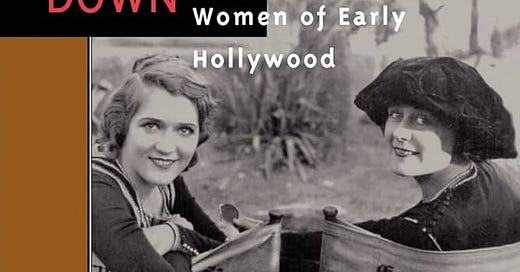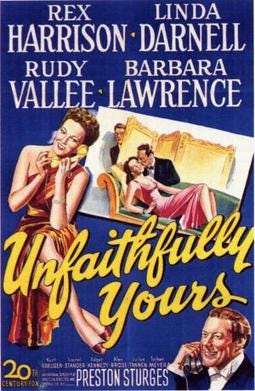A pretty quirky list, it occurred to me as I compiled it: short on fiction (as always), heavy on documentaries and old movies. Leave your own recommendations in the comments and we can argue about them!
Books
I’m about halfway through Mr. B: George Balanchine’s 20th Century, by Jennifer Homans, a former dancer herself as well as a distinguished historian. I loved the New Yorker excerpt of Mr. B, about the New York City Ballet’s 1962 tour of the Soviet Union; and I’d read and enjoyed Homans’s Apollo’s Angels: A History of Ballet. The new book does not disappoint: It’s a must for ballet-lovers and also for anyone interested in the whole sweep of 20th-century culture, from the Tsarist Russia of Balanchine’s birth through the Weimar Berlin that shaped his choreography and on through the Harlem Renaissance, the Cold War, and beyond.
I’m also taking my time with Doppelganger, Naomi Klein’s part-memoir, part- investigation of the two-sidedness of our culture and politics. It’s not that the book is dry or difficult — not at all — but more that I want to savor and think about it without rushing.
Books I’ve actually finished:
So Many Steves: Afternoons with Steve Martin. I listen to a lot of audiobooks; this selection is notable in that it’s available only as an audiobook. (I downloaded it on Libby, the public-library app.) It consists of conversations between the New Yorker’s Adam Gopnik and the many-layered Steve Martin: comedian, actor, musician, composer, author. I am a big, big fan of whatever Steve Martin chooses to do, and Adam Gopnik is a terrific interlocutor. I could listen to this book on endless repeat, like a favorite album. Also recommended (and re-read this year): Martin’s 2007 memoir, the excellently titled Born Standing Up: A Comic’s Life..
Chokepoint Capitalism, by Cory Doctorow and Rebecca Giblin. The subtitle says it all: “How Big Tech and Big Content Captured Creative Labor Markets and How We’ll Win Them Back.”
. The publisher calls it a novel, but it’s also memoir-ish: a reflection on grief, on the author/narrator’s relationship with her late mother, and also on the craft of writing and storytelling. McCracken publishes a Substack about swimming and writing, so of course I’m a fan.Three books about the movies:
Oscar Wars: A History of Hollywood in Gold, Sweat, and Tears, by Michael Schulman. The cover illustration makes it look like a juicy gossip-fest, and while there’s plenty of that, the book also goes deep into the fascinating history of the Motion Picture Academy and the politics of awards competitions.
Run Towards the Danger: Confrontations with a Body of Memory, by Sarah Polley. Polley writes about her often-harrowing experiences as a child actor on some startlingly laissez-faire movie sets, as well as her pivot to screenwriting and directing and the traumatic brain injury that led her to question the trustworthiness of memory, a persistent theme in her work. I recommend the audiobook, read by Polley herself.
Without Lying Down, by Cari Beauchamp. Published in 1998, this is a history of early Hollywood as well as a biography of one of that period’s most important (now almost forgotten) figures, the screenwriter and director Frances Marion. Beauchamp, who died earlier this month, adapted the book into a documentary feature that originally aired on TCM and is now available on YouTube.
American Midnight: The Great War, a Violent Peace, and Democracy’s Forgotten Crisis, by Adam Hochschild. I’ve been a bit obsessed with the period between the world wars ever since I researched and wrote a high school paper on the infamous Sacco and Vanzetti case. Hochschild, an unparalleled researcher and graceful writer — two qualities not often found in tandem — uncovers the dark side of the period. From the publisher’s synopsis: “This was America during and after the Great War: a brief but appalling era blighted by lynchings, censorship, and the sadistic, sometimes fatal abuse of conscientious objectors in military prisons—a time whose toxic currents of racism, nativism, red-baiting, and contempt for the rule of law then flowed directly through the intervening decades to poison our own.”
Paved Paradise: How Parking Explains the World, by Henry Grabar. Just trust me on this one, OK? So, so good.
Finally, just about once a year I re-read or re-listen to Life After Life, Kate Atkinson’s extraordinary 2013 novel that follows its protagonist, Ursula Todd, through quotidian and world-shaping events of the 20th century — again and again, in multiple versions of her life. Give yourself a present and listen to the terrific Fenella Woolgar narrating the audiobook edition. The BBC aired an adaptation of the book in 2022, but I’ve seen only the trailer.
TV
Both of these shows were on Peacock, which is odd, because I associate that platform with stuff I tend to avoid (“reality” shows, sports).
Killing It. Read my September 8 review.
Girls 5eva. After the second season, Peacock chose not to renew this brilliant and hilarious series about a ‘90s girl band that reunites in the 2020s, so the third season (yay!) will move to Netflix in March 2024. Tina Fey is one of the executive producers (and has a cameo as Dolly Parton); Fey’s husband, Jeff Richmond, composed most of the songs, with lyrics by producer Meredith Scardino.
Movies
Yes, I saw Oppenheimer. I’m going to recommend the 1981 documentary The Day After Trinity instead. Find it on YouTube (free) or most of the other streaming platforms ($).
I saw Barbie, too. If you liked America Ferrera and the general feminist gestalt of that movie, seek out Real Women Have Curves (2002), Ferrera’s movie debut. It’s on MAX and other streaming platforms.
One more do-this-not-that: The true story behind The Boys in the Boat is so compelling — underfed underdogs rise to become Olympic rowing champions — that I wished the book had been better written (or edited, or both) and that the new feature-film adaptation, directed by George Clooney, had been completely rethought, or shelved. Fortunately, you can skip the book and the Clooney movie and instead watch an excellent documentary, The Boys of ‘36, made in 2016 for PBS’s “American Experience” and now viewable on YouTube.
Movies I actually liked:
Unfaithfully Yours (1948). I saw this lesser-known Preston Sturges comedy for the first time in January, at the Noir City film festival here in Oakland, but it isn’t really a film noir, because Sturges’s sensibility was just too zany for that sort of darkness. I’ve since rewatched it on the Criterion Channel; you can also find it on Hulu and other streaming platforms. Rex Harrison is over-the-top perfection as a jealous and egomaniacal orchestra conductor: just listen to how he spits the line, “Well, August, what happy updraft wafts you hither?” The soundtrack is wonderful, too.
Turn Every Page. Another film I saw once on the big screen and a second time at home (on the Criterion Channel; it’s also on other streaming platforms). Robert Caro is, of course, the journalist-turned-historian who wrote The Power Broker and the multi-volume biography of LBJ, still a work-in-progress; Robert Gottlieb, who died earlier this year, was his editor — and often his critic — for many decades. The film is the best thing I’ve ever seen on researching, writing, editing, and collaboration. You will fall in love with these two men.
Sanctuary. I knew almost nothing about this film when I got a free pass to see it in a San Francisco theater in May. I haven’t been able to stop thinking about it since. Don’t be misled by the title: it has nothing to do with religion or immigration; rather, it’s a wild psychological thriller, starring Christopher Abbott and Margaret Qualley, with themes of entitlement, power dynamics, and sexuality. I was shocked not to see it on critics’ best-of-2023 lists. Streaming on various platforms.
It Ain’t Over. I stumbled on this Netflix documentary about the life of Yogi Berra, and did not regret a minute of it. The genial, malaprop-wielding Berra never got his due as a ballplayer, and the film aims to set the record straight. Just delightful.
The Holdovers. I am proud to have seen every feature film made by Alexander Payne, beginning with the terrific Citizen Ruth (1996). This one, his latest, could have collapsed into predictable sentimentality or nostalgia in a dozen places, but manages to surprise instead. Streaming on Peacock beginning December 29..
Movies you may never get a chance to see:
The 9 Lives of Barbara Dane. I am embarrassed to say I’d never heard of the singer Barbara Dane until I saw this documentary at the Mill Valley Film Festival in October. What a revelation, and what a great film from Maureen Gosling (the late Les Blank’s longtime collaborator). If the film has a distributor, I haven’t heard about it, which is disappointing to say the least. You can read more about Barbara Dane — 96 and still singing — on her website.
I Like It Here. Another film-festival standout, this one from this year’s San Francisco Jewish Film Festival. (You should go to film festivals!) If I tell you that it’s about death and that it’s also very funny, would you believe me?
Confessions of a Good Samaritan. The good Samaritan of the title is the filmmaker, Penny Lane, who decides to become what’s called an “altruistic” kidney donor — i.e., she’s donating to a stranger — and then has a whole lot of questions, which she faithfully documents. I saw it at the San Francisco International Film Festival, with a Q&A afterward with Lane, who is funny and honest and charming. The film deserves a wider audience, but in the meantime I can share only the trailer.
Over to you. What did you read or watch this year that made you think, laugh, or seethe?







Thank you Nancy for your confirmation that The Boys In The Boat needed some work. I couldn't get past about page 35. Looking forward to watching The Boys of '36 because the story has always attracted me.
Nancy - I too am a fan of Life After Life!